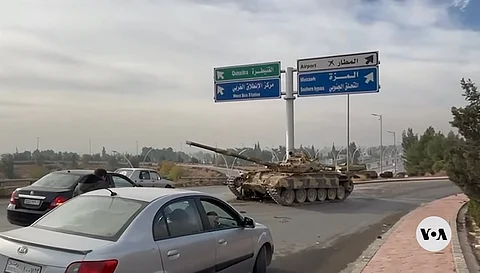

Clashes between Arab Bedouin tribes and Druze clans continued for a sixth consecutive day on Friday in southern Syria, as the government struggles to reassert control over the volatile As-Suwayda province.
By early Friday, pro-government Bedouin fighters had entered the city of Suwayda and advanced to within one kilometer (0.6 miles) of the city center. The violence was sparked by an alleged robbery of a Druze merchant last Friday, which escalated into open armed conflict by Sunday.
Earlier this week, Syrian President Ahmed al-Sharaa ordered government forces into Suwayda to restore order. However, Israeli airstrikes on the military convoys quickly derailed the deployment. Israel claimed the strikes were carried out in support of the Druze population. The campaign culminated in a major aerial assault on Wednesday, which included a strike near the Ministry of Defense and the Presidential Palace in Damascus. Unconfirmed reports suggest that President al-Sharaa may have fled the capital following the attacks.
Other military and civilian sites across Syria were also targeted. In response, al-Sharaa agreed to withdraw government troops from the south, a move widely seen as a de facto ceding of territory. Despite this, the fighting between the Druze and Bedouin continued through Thursday and into Friday.
On Friday, Israeli media reported that Israel had “permitted” Damascus to send limited government forces to Suwayda for a 48-hour window to broker a ceasefire between the factions. However, Israel reportedly warned that it would resume strikes if the troops remained beyond the agreed timeframe. Al-Sharaa is said to have accepted these conditions, though as of Saturday evening, no government redeployments to the south have been reported.
According to public statements, the majority of Druze tribes in the region support integration with Damascus. However, a prominent tribe continues to resist, contributing to the protracted violence. The Druze community itself remains divided, with some elements favoring Israeli support and possible future ties with Tel Aviv, while others firmly oppose any cooperation.